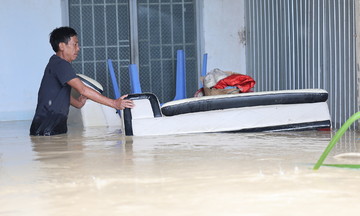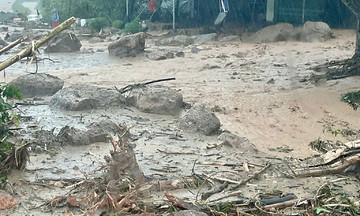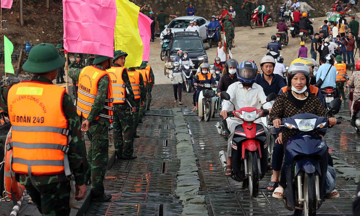Time to transform Vietnam's exam-focused education system.
Mai Van Tuc, a teacher at the High School for Gifted Students in Natural Sciences, believes it's time to transform Vietnam's outdated education system, where students primarily learn for exams.
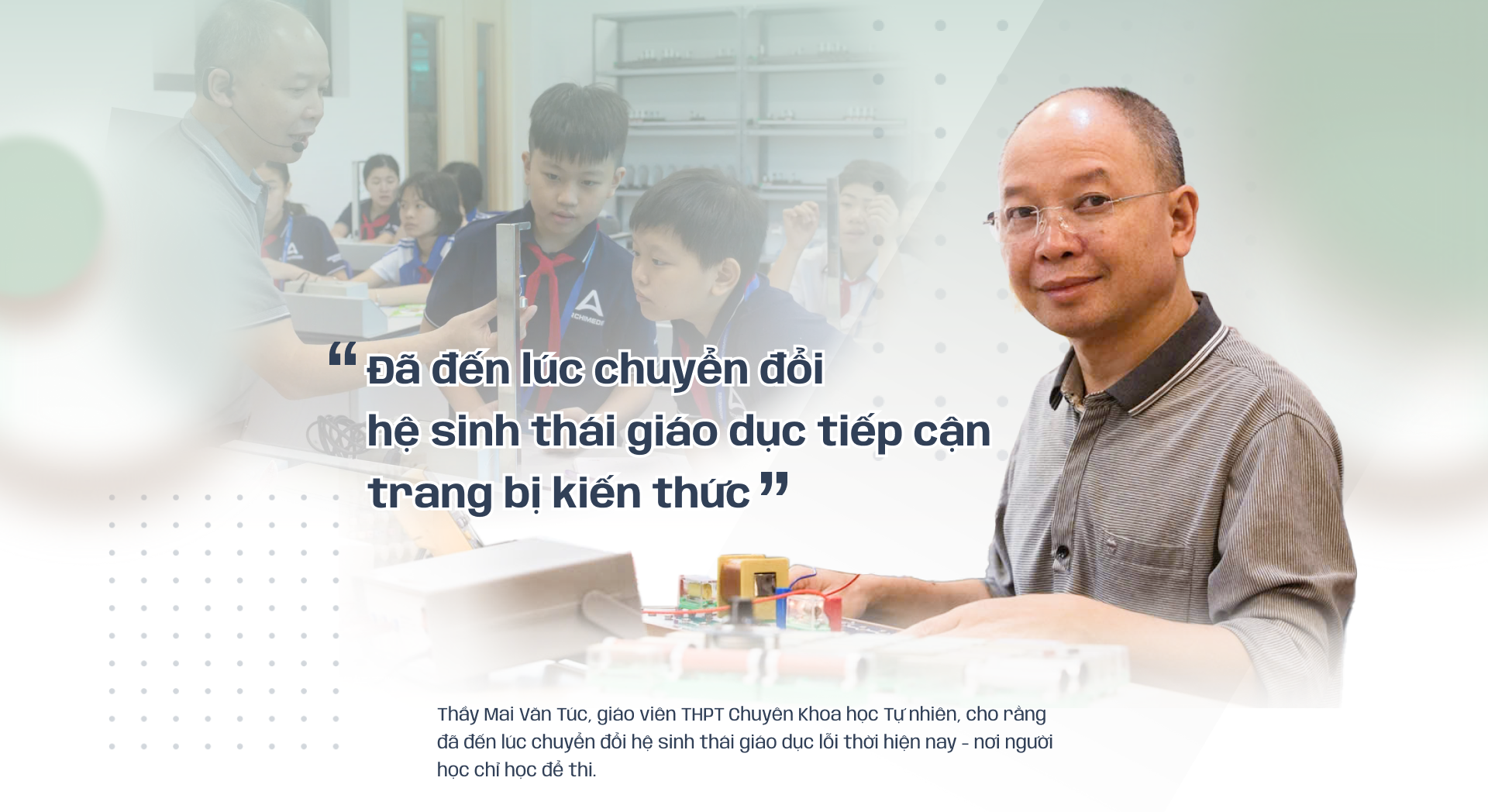 |
Mai Van Tuc serves as an academic advisor for the "Road to Olympia" program. |
In a recent National Assembly question-and-answer session, Minister of Education and Training Nguyen Kim Son compared the current state of extra tutoring to a consequence of a knowledge-based education system. To further explore this model, VnExpress interviewed Mai Van Tuc, a physics teacher at the High School for Gifted Students in Natural Sciences (Hanoi National University), who has mentored generations of gifted Vietnamese students.
Minister Nguyen Kim Son recently addressed the prevalence of extra tutoring as a consequence of a knowledge-based education system. As an experienced educator, what are your thoughts on this model?
I completely agree with the Minister's assessment. I think it accurately pinpoints the core issue. In just a few minutes at the National Assembly, the Minister identified the root cause of excessive tutoring: an outdated education model. While the 2018 general education program was a step in the right direction, it lacks several key elements to fully achieve its goals.
Our education system has operated on a knowledge-transmission model, prioritizing memorization and information recall. Knowledge is pre-packaged and presented as a complete and readily available body of facts. Students are expected to absorb this information for tests and exams, focusing on rote learning and mastering example problems to achieve high scores. This model hinders independent thinking and genuine scientific passion.
Most past exams have required students to apply formulas to familiar problem types. Questions like "why," practical experiments, and situations requiring creative thinking are almost non-existent. Even in specialized schools, considered academic leaders, when I asked 10 students from different classes, all confirmed that in three years, no teacher had ever brought experimental equipment to class. This is alarming, reflecting an education system detached from real-world application and scientific inquiry.
 |
Having witnessed this knowledge-based education model for years, what are its consequences?
This knowledge-based education model, focused on information transmission and memorization, may seem harmless but has serious, long-term, systemic consequences. Primarily, it stifles independent and creative thinking, essentially diminishing the potential of talented individuals, a nation's lifeblood.
This approach also turns students away from fundamental sciences like physics, chemistry, and biology. Subjects that once sparked exploration have become dreaded due to their emphasis on formulas, exercises, and definitions to memorize. Students lack hands-on experiments and real-world observation, focusing solely on "solving problems" and "getting grades." Knowledge acquired for exams quickly fades, leaving little applicable to life or work. This is the root cause of the shortage of high-quality human resources in Vietnam's technology, engineering, and research sectors – a lack of genuinely passionate individuals capable of innovation.
Teachers, too, lose their motivation to innovate. In this exam-driven system, they become "test preparation specialists" rather than inspirers. They lack time for innovation, creative lesson planning, or updating teaching methods. The fear of poor class performance leads to an obsession with exams, answers, and scores. This constant pressure erodes the teaching profession.
This model also contributes to the imbalance between urban and rural areas, creating an unspoken "tutoring race." Students without financial means are left behind. A culture of studying for exams, rather than for understanding and mastery, pervades society. This "coping" mentality replaces the drive for genuine growth and development.
The most severe consequence is the decline in workforce quality. Businesses complain that graduates lack basic work skills and struggle to adapt to real-world environments. Many engineers and graduates with high GPAs don't grasp the essence of their work, lack critical thinking, and fail to solve problems because their foundation is solely exam-based skills.
This situation threatens a future shortage of scientific and technological talent. A nation cannot develop sustainably if its youth lose interest in science. A nation's potential cannot flourish if learners lack space for creativity, experimentation, and individuality.
Society also pays the price in time, money, and effort. Parents adjust their work schedules for tutoring; centers consume electricity, people waste fuel, causing traffic jams and pollution. Millions of teachers and students are exhausted from demanding schedules. But the greatest loss is not material; it's the waste of potential: children who once loved learning become disillusioned, once creative become resigned. It's time for honest reflection to move forward decisively. Innovation cannot be just a slogan; it must begin with truth and the courage to confront it.
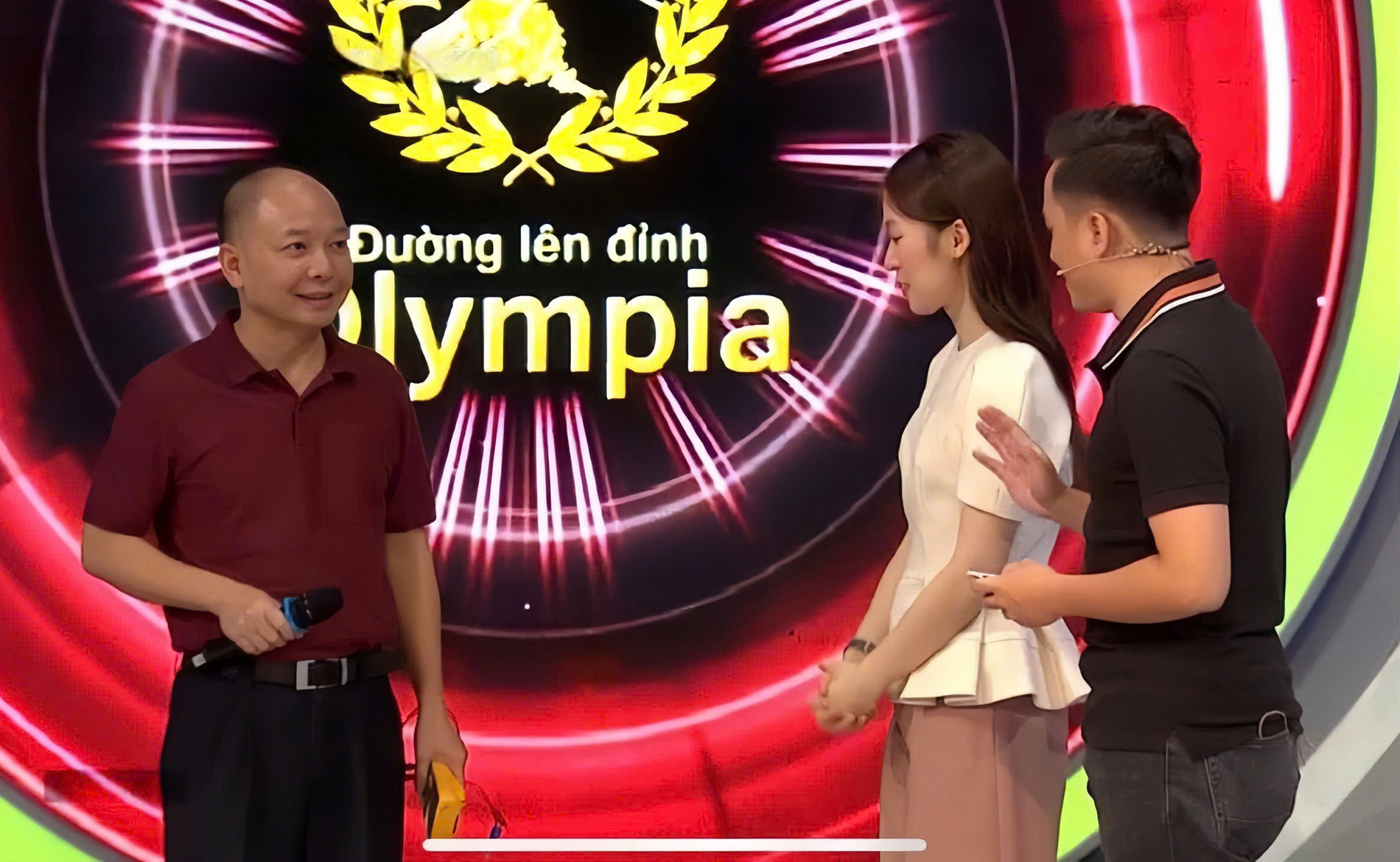 |
Why has this flawed education model persisted for decades?
This is a complex question with multifaceted answers. The current education model doesn't exist in isolation but is intertwined with systemic elements, from exams and curricula to textbooks and management approaches. Exams are often seen as the primary basis for directing teaching and learning. Many schools, teachers, and parents still consider exam results the objective measure of educational quality.
Furthermore, knowledge-based education simplifies management. Assessment based on concrete scores facilitates monitoring, aggregation, and ranking. Metrics like the percentage of high-achieving students, award winners, or high test scores are often used to evaluate a school's effectiveness.
When achievement indicators become the standard, many prioritize exam preparation and rote learning. Students study for tests, teachers teach for test scores, and parents invest additional time and resources. High scores become the default societal goal.
Changing a long-standing education model is challenging. Established routines, a desire for stability, and existing relationships within the system create resistance to change.
 |
This year's high school graduation exam shifted towards competency assessment rather than pure memorization. How will these changes impact current teaching and learning practices?
As mentioned, teaching and learning in Vietnam have primarily focused on exam preparation. Teachers and students often "follow" the exam format: teaching and learning extensive knowledge while practicing familiar question types. This results in passive, teacher-dependent students lacking creativity and practical application opportunities.
With the shift to competency-based assessment, teachers and students must adapt. Teaching will no longer prioritize "cramming" but will focus on developing self-learning, creative thinking, and problem-solving skills. Teachers must design lessons that cultivate reading comprehension, data analysis, and flexible reasoning.
However, due to its novelty, some consider this year's exam difficult or "beyond the curriculum." This is understandable, as teachers have traditionally adhered closely to textbooks, treating them as absolute. When encountering data, assumptions, or research not found in textbooks, they deem the exam lengthy or exceeding requirements. But this shift in exam format is crucial for assessing reading comprehension, data identification, and knowledge application – essential skills for learning and life.
If the Ministry of Education and Training steadily increases the proportion of competency-based questions over the years, both teachers and students will adapt. Teaching and learning in secondary and high school will become more substantive: students will develop independent thinking, initiative, and problem-solving abilities – a significant step towards enhancing overall education quality.
Album: Physics experimental equipment invented by Mr. Tuc
 |
Besides changing exam methods, how should the knowledge-transmission education model evolve for the modern era?
We must acknowledge that the current education model, centered on knowledge transmission and exam preparation, is outdated. The Ministry of Education and Training is working on reforms to address this and gradually transition to a new approach.
We need a new educational ecosystem where learners are central, actively constructing knowledge. The goal of education should not be "learning for exams" but "learning for life, for work, for mastering the future." Education must equip students with critical thinking, adaptability, problem-solving, and creativity – essential qualities for modern citizens.
One suitable model is STEM education (Science, Technology, Engineering, and Mathematics). STEM is not simply combining four subjects; it's a new educational philosophy fostering critical thinking, creativity, collaboration, and real-world problem-solving.
STEM education doesn't transmit knowledge one-way but creates an open learning environment for self-directed learning, experimentation, and experience. Teachers become facilitators, designing scenarios and guiding students to role-play as engineers, researchers, or inventors, tackling practical problems.
For example, instead of lecturing on spring extension and assigning calculations, a teacher could present a scenario: "The class is a company designing a keychain-mounted weight measurement device for an international bid." Students, as engineers, would discuss, build, test, and calculate errors. They'd independently explore Hooke's Law, physics formulas, measurement methods, and teamwork. Each lesson becomes a journey of discovery and creation.
Importantly, STEM doesn't rely on expensive equipment like robots, sensors, or modules, a common misconception. The key is changing the teacher's role, lesson structure, and assessment methods to reflect not just scores but the development of practical thinking and skills.
Understanding STEM's essence means recognizing that the goal isn't creating impressive display products but nurturing thinking, experience, and discovery. When students understand their learning purpose and how to transform knowledge into life skills, education fulfills its liberating role, fostering well-rounded individuals and contributing to a creative future generation.
Education is the foundation of all development. Without rapid and significant change, we'll continue producing generations who memorize, test, and forget. A nation cannot expect innovation if its education system produces "exam machines" lacking independent thought and practical skills. The aspiration to become a developed nation requires an education system that truly unlocks human potential.
Huy Minh









